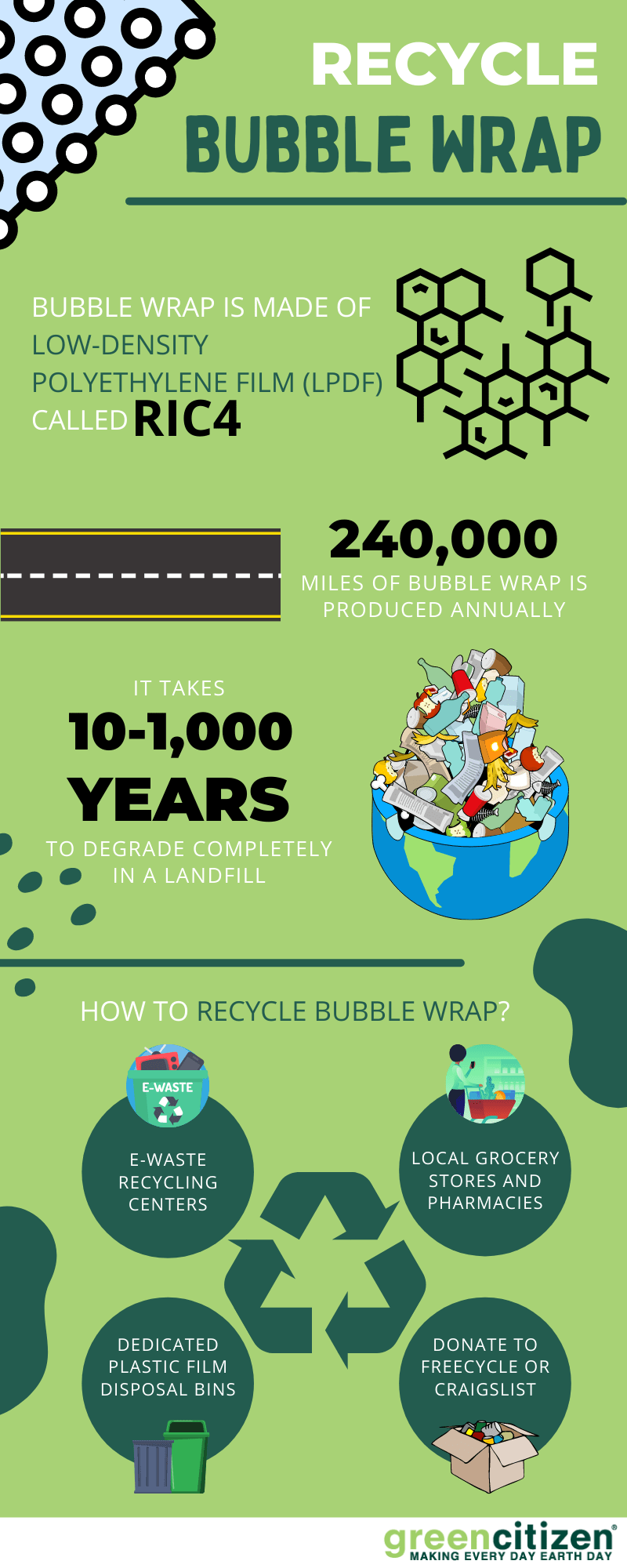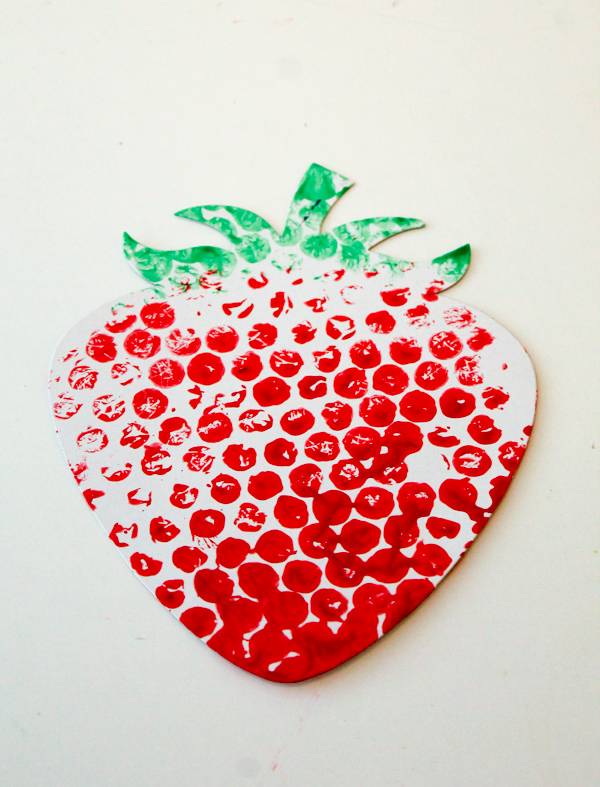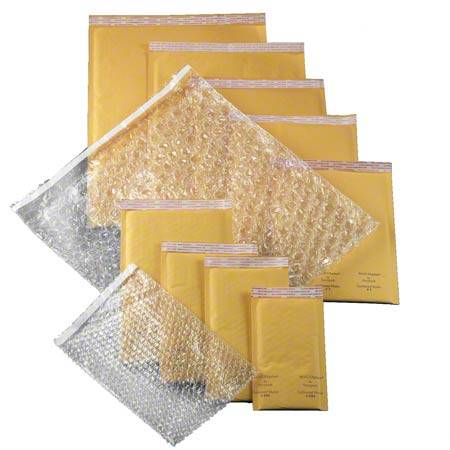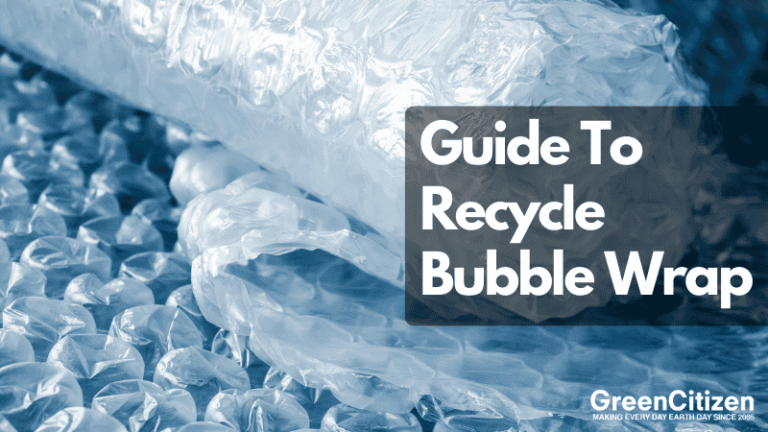Every year, we produce a staggering 240,000 miles of bubble wrap—that’s enough to circle the globe ten times over! By 2034, bubble wrap market is set to balloon to a hefty $4.2 billion.
Ever wondered where all this poppable packaging ends up?
Well, it’s high time we did! Today, let’s dive into the bubbly world of bubble wrap recycling. I’ll show you why recycling it isn’t just good manners—it’s a must. Remember when I tried using bubble wrap as window insulation? Not only did my heating bill thank me, but my cat also found a new favorite sunspot—double win!
Reusing and recycling bubble wrap isn’t just about saving money; it’s about saving our planet one pop at a time. So, the next time you unwrap that parcel, think twice before tossing out the bubble wrap.
Your wallet—and the Earth—will thank you.
Key Takeaway: How to Recycle Bubble Wrap the Right Way
Bubble wrap isn’t curbside recyclable—but it is recyclable. Drop it off at e-waste centers, grocery store bins, or plastic film collection points. Avoid landfill waste and machinery damage by keeping it separate from hard plastics. Better yet, reuse it creatively for packing, crafts, or insulation.
Can You Recycle Bubble Wrap?
Yes, you can. But not in the same way as the rest of your plastic, such as soda bottles or cardboard. The majority of bubble wrap recycling municipal programs won’t accept it curbside.
Here’s why.
Harder plastic is classified as Resin Identification Codes (RIC), which is divided into 1 and 2. Products that fall under this classification are made from polyethylene terephthalate (PET) or high-density polyethylene (HDPE).
Harder plastic products include water bottles, food storage containers, toys, shampoo/conditioner bottles, and more.
On the other hand, bubble wrap is made from RIC4, which is a low-density polyethylene film (LPDF). Pay attention to the film part because LPDF comes in film and a more rigid form.
LPDF film is the same kind of plastic that’s used for different types of bags such as:
- Plastic grocery
- Bread
- Zip-top
- Dry-cleaning
Did you know soft plastic is the #1 contamination in the recycling system today?
Unfortunately, soft plastic isn’t accepted for curbside recycling because plastic film can tangle with other recycling items.
Moreover, it can cause jams in the machinery, which can shut down the whole recycling system. This costs time and money to fix, and it can damage the machinery or even cause an injury to the person trying to fix it.
What usually happens with bubble wrap is that it’s sent to the landfill with general waste, where it takes 10-1,000 years to degrade.
Luckily, there are ways of recycling bubble wrap. It should be separated from hard plastics and put together with other soft plastic and taken to the recycling center or the drop-offs designated for plastic film.

Why Should You Recycle Bubble Wrap?
Recycling bubble wrap isn’t just a good practice—it’s crucial for our planet. Here’s why turning your old bubble wrap into something new is a game-changer:
1. Non-biodegradable
Did you know bubble wrap can haunt our planet forever because it’s not biodegradable? That’s right, it just sits in landfills for eternity. But that’s not the only reason why recycling it should be on your to-do list.
2. Saves Petroleum
For starters, bubble wrap is made from petroleum. By recycling it, you’re actually reducing our reliance on this non-renewable resource. And, if it ends up being burned instead of recycled, it releases nasty chemicals like dioxin—bad news for our health.
3. Reduces Toxic Emissions
Here’s another startling fact: plastics leach toxic substances into the groundwater. Imagine harmful chemicals from countless landfills seeping into our water sources—that’s our drinking water at risk.
4. Wildlife Safety
Have you ever seen bubble wrap flying around your street on a windy day? It’s not just an eyesore; it becomes a danger to wildlife who might mistake it for food. One windy day, I saw bubble wrap stuck on a tree and a squirrel wrestling with it—a real-life cartoon, only not funny.
5. Avoids Machinery Jams
Bubble wrap can be a real pain for recycling facilities. It gets tangled in the machinery, bringing the entire recycling process to a halt, risking workers’ safety when they remove it manually.
6. Saves Money
Here’s a lighter note, though. Reusing bubble wrap can save you some cash. Next time you need to pack something, reach for that used bubble wrap instead of new packing materials. I once moved an entire home office using bubble wrap from old parcels—my fragile items survived, and my wallet did too.
So, by recycling bubble wrap, you’re not just helping the environment. You’re also aiding recycling companies and making the process safer and more efficient.
Let’s keep our world clean and bubble wrap out of the landfill—one pop at a time!
How to Recycle Bubble Wrap?
The good news is, there are several ways in which you can recycle and reuse bubble wrap. I’ll go into depth on each of these.
1. E-Waste Recycling Centers
E-waste recycling centers are the best places for recycling your bubble wrap and plastic bags.
New technology is popping up every day, which results in people always upgrading their equipment. Because of this, computers, cell phones, and gaming systems are becoming obsolete daily. Once discarded, these products are known as electronic waste or e-waste.
What’s the main component of these devices?
Plastic!
So, how do you find e-waste recycling centers? By using GreenCitizen’s Green Directory.
All it takes is a couple of clicks:
- In the "search for" section, type the item you want to be recycled, such as a plastic bag or bubble wrap.
- Choose the location that works best for you.
- Select within how many miles you want the recycling center to be.

You’ll be given multiple locations that correspond to your search. Simply pick one that works best for you.
It’s also a good idea to give e-waste centers a call and check what kind of plastic they receive, do they offer pick-up services, or if you should get the plastics to them.
2. Local Grocery Stores and Pharmacies
Another great option for recycling plastic bags and bubble wrap is your local grocery stores and even pharmacies. You’ll find that many grocery stores, such as Target, Walmart, Lidl, and others, have drop-off recycling centers. The best part is, these recycling programs also accept bubble wrap.
Here’s what can be recycled in the local grocery store or pharmacy:
- Plastic bags — This includes grocery, produce, newspaper bags, even zipper sandwich bags
- Plastic wraps — For paper towels and diapers
- Pouches and air pillows
Pro Tip: Bubble wrap recyclable items don’t have to be dropped off at the store you bought them at. This includes the things you purchased online. Simply put bubble wrap recyclable items in a recycling bin in retail stores.
3. Dedicated Plastic Film Disposal Bins
I’ve talked about how bubble wrap is damaging for the recycling machinery, and more importantly, how it can hurt the person trying to unjam it.
That is why you can’t recycle plastic film curbside with the rest of your plastics.
Instead, look for dedicated plastic film disposal bins.
You’ll usually find these bins at local grocers and retailers. Normally, they’re placed near entrances to remind the customers to recycle their plastic bags.
4. Donate to FreeCycle or Craigslist
Lastly, you can donate your plastic film.
You can give it to your friends and family who are moving. Or, you can put up an ad on Craigslist or Freecycle. You can also go to your local community’s Facebook group. You’re sure to find people who can repurpose bubble wrap for moving, storing New Year decorations, or wrapping up their heirlooms.
Pro Tip: You can also turn to shipping centers. For example, the UPS store also accepts donated material occasionally. But, before dropping in with tons of bubble wrap and packing materials, make sure to call ahead first and check.
How to Repurpose Bubble Wrap? *Hint: Be Creative!
I’ve talked about several ways in which you can safely dispose of your bubble wrap. But, if you’ve got a creative side to you, there’s no end to things you can make with bubble wrap.
Here’re some of my favorite examples.
Bubble Wrap Printed Fruit and Veg
This is a fantastic idea if you have toddlers that you want to keep occupied or if you’re a teacher and need some props for your next class.

Credit: intheplayroom.co.uk
Here’s what you’ll need:
- Fruit and veg card-shaped
- Bubble wrap
- Ready-mix children paint
Once you’ve got the supplies, the party can start. Here’s what to do:
- Decide on the colors for each fruit and veg.
- Paint the bubble wrap in the selected color until you get even coverage.
- Print your card by putting it over bubble wraps, so it absorbs color.
The final result will be effective, and your toddlers will have fun printing the colors onto the cards.
Pro Tip: If you need more than one color per fruit or get, do the side you need, and then turn it around to do the rest.
Bubble Wrap Garden Insulation
I’ll admit, I was shocked when my friend told me to reuse bubble wrap as garden insulation. I would never have thought of it, but I was surprised to find out it really works.
If you live in a colder climate where temperatures dip during the winter months, there’s no better way to insulate your plants than with bubble wrap.
Use bubble wrap to insulate plants that grow in containers, as they’re more sensitive to cold than those that grow in the ground.
Also, if you have a large plant, such as a citrus tree, that’s difficult to find space indoors, bubble wrap will be your best friend. Just wrap it around the tree to keep it safe until it’s warm again.
Here’s a video guide to help you with the process:
If you’re feeling crafty and want to reuse your bubble wrap and even plastic bags, do a quick YouTube and Pinterest search. You’ll find a wealth of ideas at both of these places. You’ll never run out of suggestions on how to reuse bubble wrap.
Can you Recycle Bubble Mailers?
Recently, bubble mailers and bubble wrap envelopes have been gaining popularity and are being used more frequently over cardboard boxes, mainly because they’re lightweight.

While they make the packing process easier, they’re more difficult to recycle. You can’t just put them in with the rest of the curbside recycled materials because they’ll end up in landfills. You want to avoid bubble mailers and bubble wrap envelopes being sent to landfills, where they’ll remain for hundreds of years because they’re non-biodegradable.
The first step in recycling bubble mailers is to determine the material it’s made of. If the bubble mailer you have is only made of plastic film material, you can send it to be recycled with other bubble wrap and plastic bags.
If, however, your bubble mailer is made of different components, you should remove the components into separate materials. Recycle the paper as you usually would, and take the bubble roll to the plastic recycling store drop-off. All the materials you’re taking to be recycled should be packed inside a clear plastic bag and tied to make sure plastic film doesn’t escape.
If you live in an area where there aren’t any bubble wrap recyclable locations, you should try to reuse it. You can use it to ship your own packages or get creative (check out the ideas above).
Pro Tip: Bubble mailers should be dry and clean, and you should remove as many stickers as possible before sending it to be recycled.
Frequently Asked Questions (FAQ)
Yes, bubble wrap should be popped before recycling.
Once it’s in the landfill, plastic bubble wrap takes 10-1,000 years to decompose. Biodegradable bubble wrap will decompose in 180 days by bacteria and other living organisms.
No, you can’t throw bubble wrap curbside. It won’t be recycled, but it’ll end up in a landfill, where it’ll take a long time to decompose. Moreover, plastic exudes toxins, so it’ll be bad for the environment.
Yes, Walmart has bubble wrap recyclable drop-off locations. It’s usually located near the entrance.
Final Thoughts
I hope this guide has answered your question — is bubble wrap recyclable.
I talked about how to recycle and reuse bubble wrap. Keep in mind, you can’t recycle plastic bag and bubble wrap together with other plastic, but it has to be recycled in either special drop-off locations or at e-waste centers.
The quickest way to find where to recycle bubble wrap near you is to check the Green Directory. It’ll take you less than a minute to find the most convenient location for your plastic bag and bubble wrap recyclable needs.
I’d love to hear what has been your experience with recycling plastic film. Let me know in the comments below or sound-off with any recycling questions you have.

